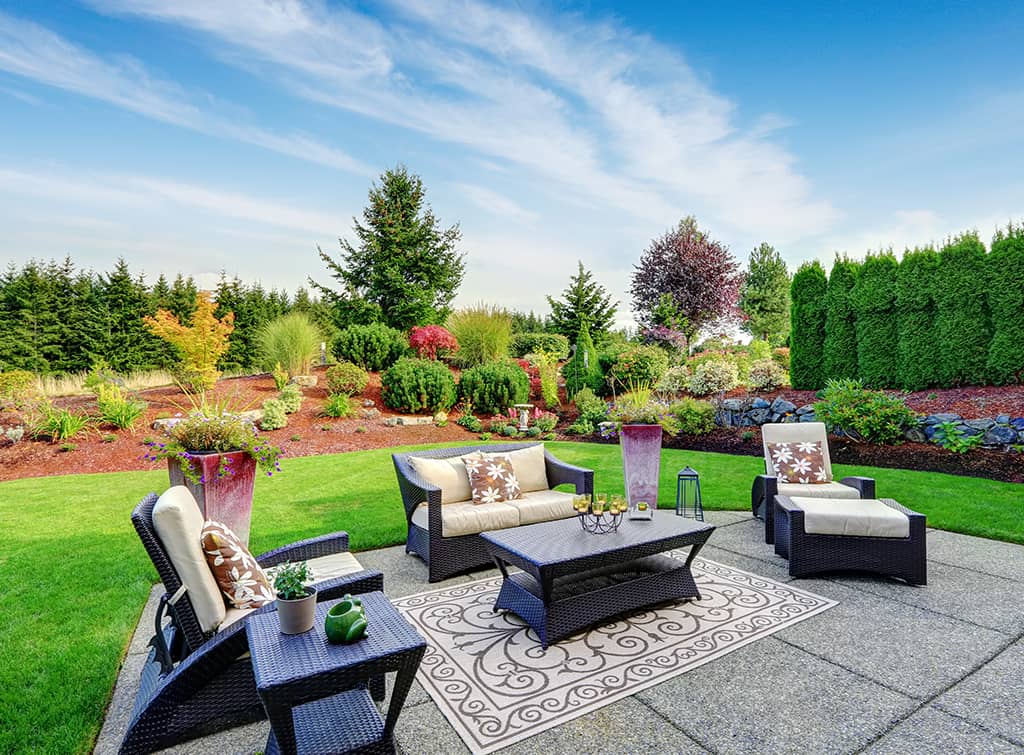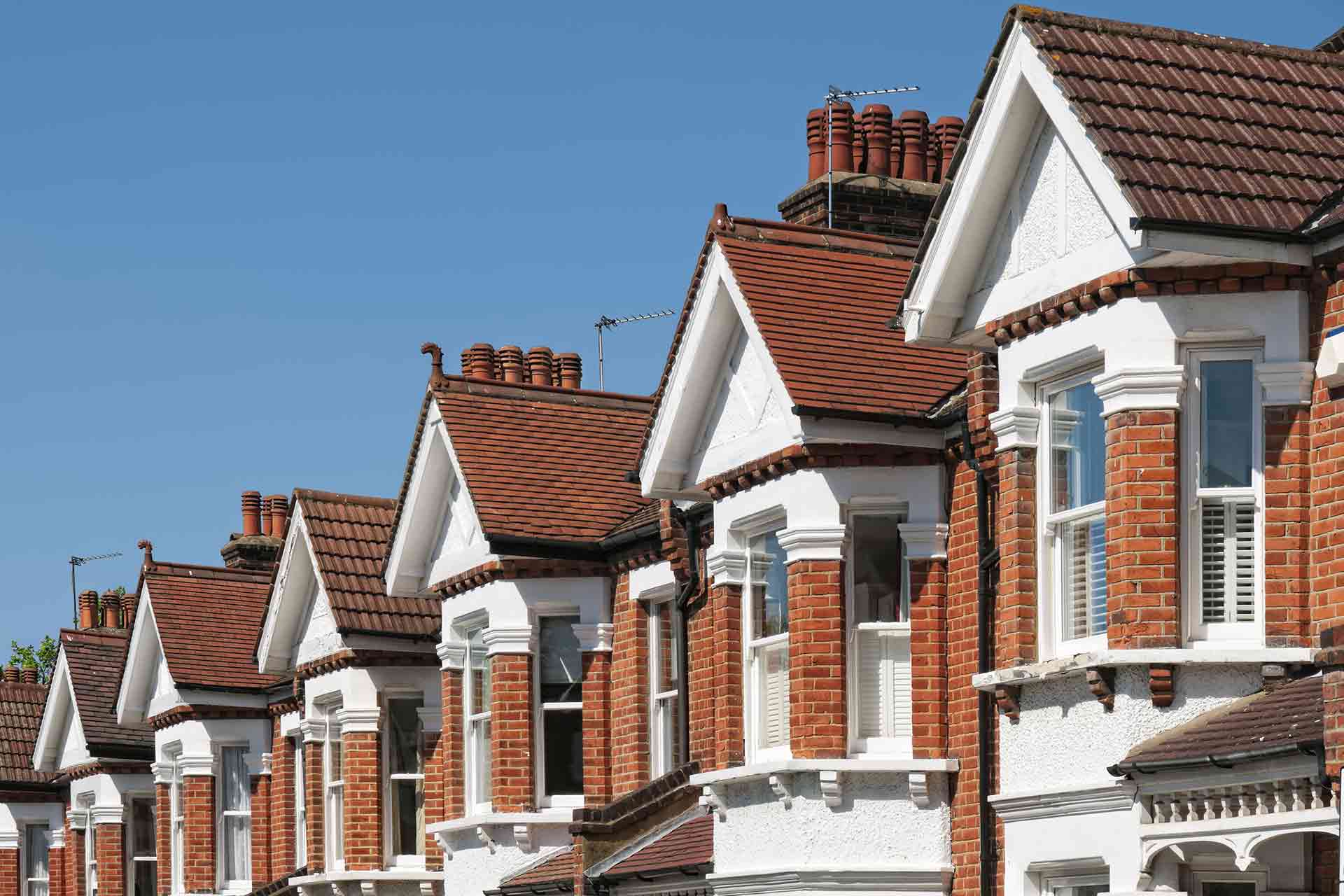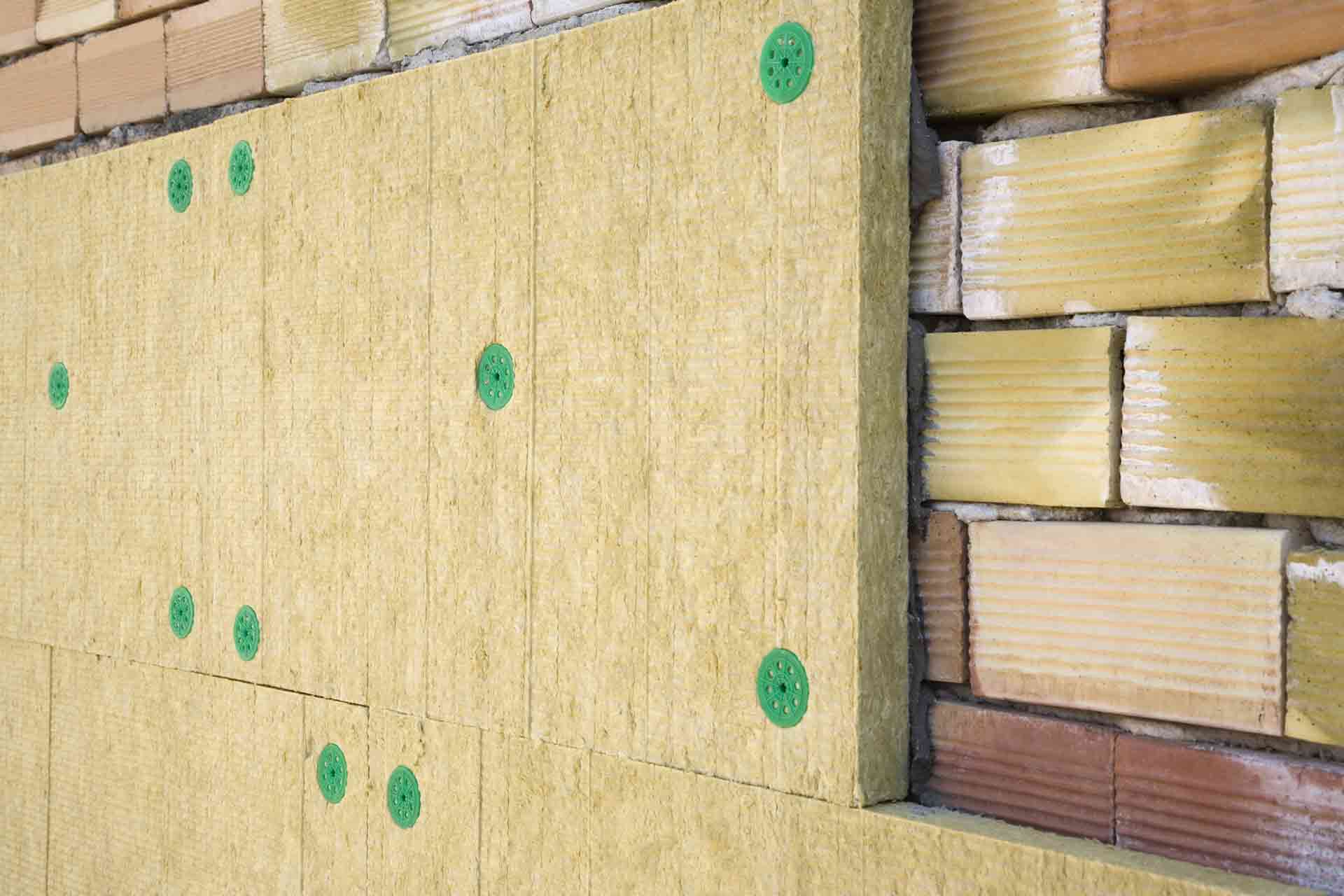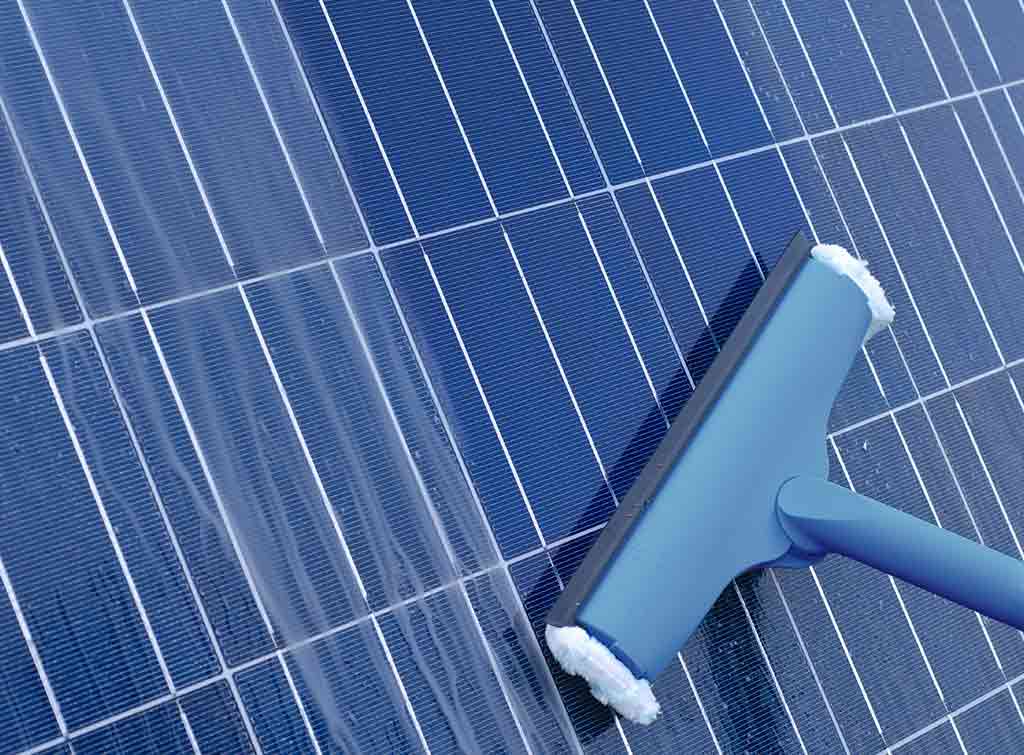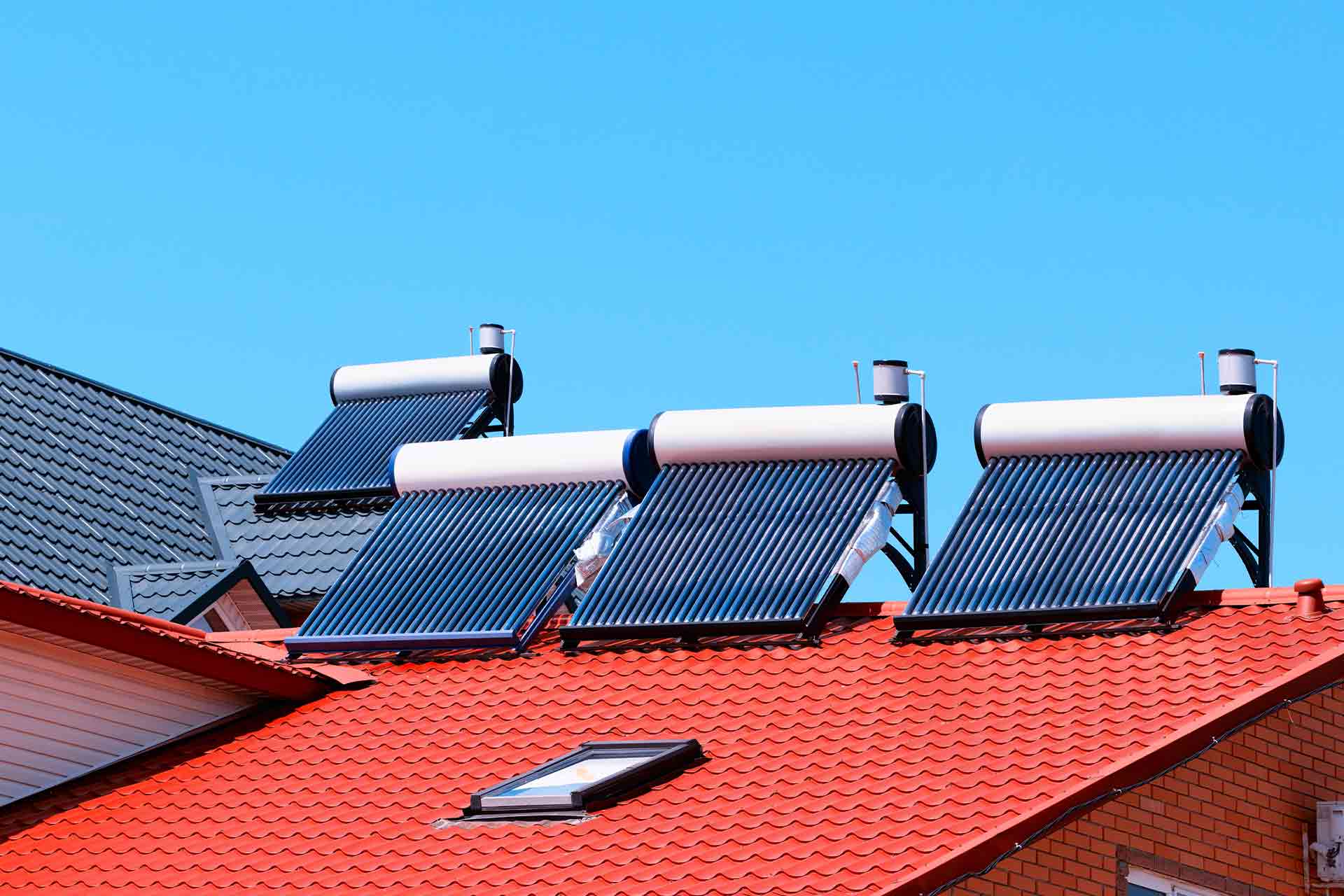Blog>Cost Guides>Solar panel installation: Cost breakdown 2025
Last updated: 1 July 2025
Solar panel installation: Cost breakdown 2025
With energy prices soaring in recent years, there's never been a better time to plan for solar panel installation. Not only does this energy-efficient upgrade help to reduce energy bills, but it'll reduce your carbon footprint too. Let's look at how much solar panel installation costs.

The cost of solar panels varies hugely depending on the type and size of the system you require.
Fast Facts
A 4kW photovoltaic (PV) system, suitable for a 2-3 bedroom house typically costs around £8,000 (incl. installation). Including an inverter and solar battery takes the average cost to around £12,000
You could save around £735 per year on your energy bills (based on a 4kW system) and earn up to £360 a year selling unused energy back to the National Grid
Government grants and schemes can help to reduce the cost of installing solar panels
You can earn money from the surplus electricity your solar panels generate through the Smart Export Guarantee (SEG)
How much does solar panel installation cost in 2025?
A standard-sized 4kw solar panel system for a 2-3 bedroom house in the UK typically costs around £8,000. However, costs soon start to climb the bigger the house.
The cost of solar panels varies depending on the type and size of the system you require. However, as a rough guide, here are some average costs to get you started:
| System | Property type | Estimated cost (solar) | Plus battery storage | Battery storage cost | Total install cost (solar + battery storage) |
|---|---|---|---|---|---|
| 3kW PV system | Terraced | £6,000 | 5kWh | £4,500 | £10,500 |
| 4kW PV system | Semi-detached | £8,000 | 8kWh | £8,000 | £16,000 |
| 5kW PV system | Small detached | £9,000 | 10kWh | £9,000 | £18,000 |
| 6kW PV system | Large detached | £10,000 | 12kWh | £10,000 | £20,000 |
| Solar thermal system (3.6m²) | £5,000 - £6,000 | ||||
| Last updated: February 2025 Our costs are ballpark averages - get a local tradesperson to quote now | |||||
The bigger the size of your solar panel system, the higher your solar panel installation cost will be. However, don't be tempted to buy a smaller system to make your solar panel installation more affordable. Solar panel systems with higher kW generally produce more electricity, so you'll save more money in the long run.
How much does it cost to install solar panels in the UK?
A 4kw solar panel system, suitable for a 2-3 bedroom house, typically costs around £8,000
A 6kW system, more suited to a larger, 4+ bedroom house, typically costs around £10,000
How much do solar panel installers charge per day UK?
Labour costs to install the solar panels are typically included in the quote. But as a guide, expect to pay around £300 per day, per installer.
Installation is normally undertaken by two installers
Solar panel installation on a standard system can normally be completed in one day
The complexity of the electrical wiring, roof accessibility issues, or your roof being in poor condition can all impact labour costs
Tip: When hiring a solar panel installer, remember to look for accreditation from the MCS (Microgeneration Certification Scheme).
Solar panel cost: Job estimator tool
Use our job estimator tool below to help calculate how much you can expect to pay for solar panels in your area.
Need help working out cost? Our job estimate tool calculates the costs for you.
Factors affecting the cost of solar panels
Several factors will influence the total cost of installing your solar panels, including:
The size of the system: Larger homes tend to use more energy, which affects the size of the system you need. The larger the system, the higher your upfront costs, but you'll see greater energy savings
The type of system: High-efficiency, Monocrystalline panels cost more than Polycrystalline panels, but provide better long-term savings
Additional components: Costs will increase if you include a solar battery, if you need additional mounting equipment, or pigeon-proofing
Installation complexity: More complex electrical wiring, wiring upgrades, or custom panel arrangements will add to your solar panel price
Roof condition: Structural reinforcement to support the weight of the panels, special mounting for slate roofs, for example, or roof repairs can all increase overall costs
Accessibility: The ease of access to the roof and the loft space can impact the price you are quoted
Regional variances: Labour costs vary across the country. Get quotes from several local companies to get a fair and competitive price for your solar panel installation
Solar panel grants: If you're eligible for a solar panel grant, this will help to reduce the overall cost
Learn about the types of solar panels and what to consider.
Hidden costs to watch out for
It's not just the outlay for the solar panel equipment and installation you need to budget for. Here are some other costs which you might not be aware of:
Solar battery costs
Adding a solar battery will increase your solar panel installation costs. Generally speaking, it's more cost-effective to install your solar battery system at the same time as your solar panels (rather than adding it later on).
Solar batteries can make you less reliant on the National Grid, by helping you to use more of the renewable energy you've generated yourself
In turn, this can help to save more money in the long run
A standard 4kWh battery (Lithium ion, 6,000 cycles with a 10-15 year life) costs around £4,000
Read our solar battery storage system cost guide for more detailed information.
Solar inverter costs
The solar inverter is an essential component that converts the DC electricity produced by your solar panels into AC electricity for use in your home.
On average, a standard 4kW inverter (that will typically last around 12 years) costs £900.
Ongoing maintenance costs
In the UK, we get a fair amount of rain, which is handy for cleaning your solar panels (as long as they're pitched at 15 degrees or more).
If you have ground-mounted panels, or you live in a dusty environment, you may wish to have them cleaned now and again to ensure efficiency.
Regular maintenance will also help to ensure your solar panels work efficiently.
On average, solar panel cleaning costs between £4 and £15 per panel
An annual solar panel service normally costs between £100 and £200
Cost of hiring a solar panel installer vs DIY
It’s not a good idea to install solar panels yourself due to the complexity and safety requirements involved.
Solar panels are hefty and expensive bits of kit, so you’ll want to avoid any DIY mishaps. Plus, most solar panel warranties are only valid if installed by a certified professional.
For extra peace of mind, use Checkatrade to find a tradesperson committed to quality. Read reviews from real people and get guidance on your solar panel installation needs.
Get a quote for your solar panel installation
For an accurate quote, search for checked tradespeople offering solar panel installation services.
Use our request a quote feature to get quotes from checked tradespeople or search your postcode to find solar panel service providers covering your local area.
See the tradespeople we've checked and recommend for your job
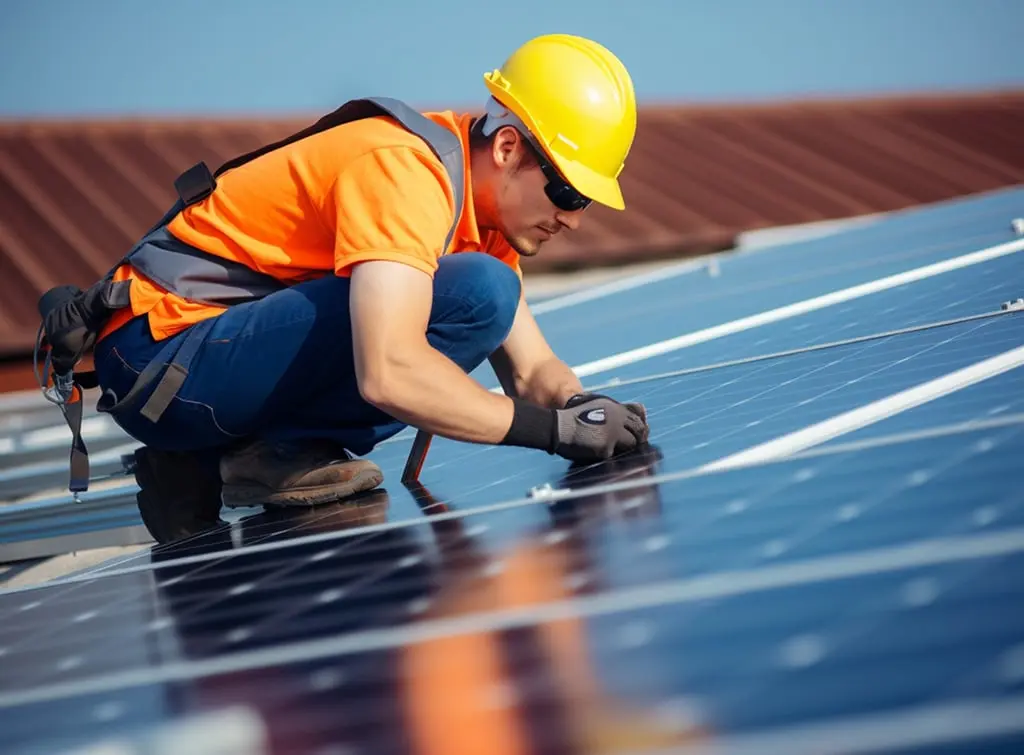
How much money do solar panels save?
Installing solar panels not only reduces your electricity bills, but you can also earn money by exporting surplus electricity back to the National Grid.
1. Solar panel energy savings in the UK
Every household is different, so it's hard to say exactly how much money you could save from installing solar panels.
A 4kW solar panel can save you around £735 in electricity bills* (Estimate based on Dec 2024 electricity prices).
When estimating your savings, it's worth bearing in mind a few key factors, including:
The size of your solar panel system
How much electricity your household uses
The cost of electricity
How you maximise the energy you generate
How efficient your solar panels are
To maximise the amount you can save on your energy bills, it's best to use appliances like your washing machine and dishwasher when the sun is out.
Using your appliances while your solar panels are active will enable you to run them using the energy you're generating rather than drawing electricity from the grid. Small changes like this can make a big difference to your energy bills.
2. Solar panel government scheme
To help offset your solar panel installation cost, you can get paid for the solar energy you generate but don't use through the Smart Export Guarantee (SEG).
Offset your solar panel costs with SEG payments
Depending on the supplier you choose, you can generally earn up to 6.4p per kWh or around £360 a year.
This energy then gets used by the National Grid, allowing other homes to make use of the renewable energy that's been generated by your solar panels.
To do this, you need to apply to a SEG Licensee (an electricity supplier that offers an SEG tariff).
It's worth shopping around different suppliers to get the best rates. If you export lots of energy to the National Grid, this can make a big difference to how much you earn.
Reduce your solar panel costs with government grants
There are several schemes available that can help to reduce the initial cost of solar panel installation. However, you'll need to check whether you meet the eligibility criteria. These include:
ECO4
ECO4 Flex
The Warm Homes: Local Grant
0% VAT
You can also register your interest for Solar Together (group-buying for solar PV and battery storage systems for competitive pricing).
Read our guide to solar panel grants and schemes for more detailed information. Or, for other green energy ideas, head over to our dedicated green homes hub.
3. Solar panel payback period explained
According to the Energy Saving Trust, the solar panel payback period with export payments can be anywhere between 11-21 years. That is, the time it takes for the savings from your solar panels to equal your initial investment. However, this will depend on several factors:
The type of solar panel system you install
The size of your system
Your export tariff (under the Smart Export Guarantee)
How much energy your home uses
Current electricity prices
Your location
After you've broken even, the cost savings you get from lower energy bills and the SEG will all go straight into your pocket.
So, as long as you're not planning on moving home in the next few years, the initial cost of solar panel installation will be worth it in the long run.
See the tradespeople we've checked and recommend for your job
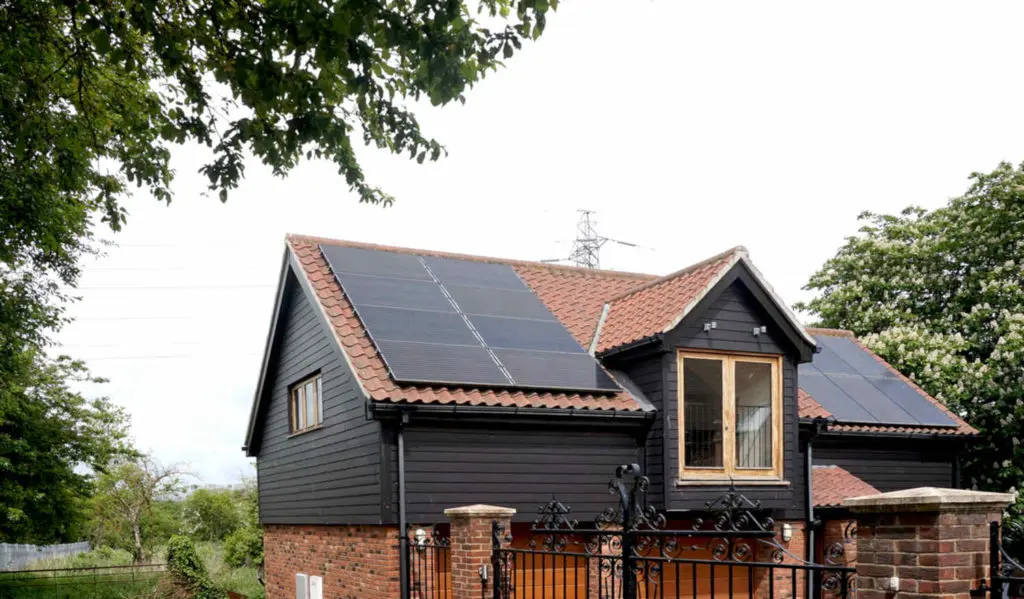
Solar panel installation cost calculator
Our solar panel cost calculator provides an estimate of the cost of installing this renewable energy solution on your home. Make your selections to get a rough project cost.
Add item (choose one)
Item | Avg Unit Cost | Your Cost |
|---|---|---|
£6,000.00 per m² | ||
£8,000.00 per m² | ||
£9,000.00 per m² | ||
£10,000.00 per m² |
Add items (specify quantity of each)
Item | Avg Unit Cost | Your Cost |
|---|---|---|
Standard battery | £4,000.00 each | |
Standard inverter | £900.00 each | |
Labour cost | £300.00 per person (per day) | |
Structural survey | £150.00 each | |
Scaffolding | £800.00 each |
Your solar panel installation project could cost:
£0.00
Working with professional estimators, we collate cost estimates for the common home improvement and repair jobs in the UK. All the costs are estimates only and for accurate costs for your particular requirements, you are encouraged to reach out to professional tradespeople to receive a quote for your job. Read our disclaimer for more information.
Find checked solar panel installation services covering your local area
As a significant investment, it's important to hire a certified solar panel installer. You can do this by looking online, reading reviews and asking for references.
Running a quick Checkatrade search can boost that ‘yep, I’ve nailed it’ feeling. Our tradespeople must pass up to 12 checks before we list them, and score an average of 9/10 based on reliability, workmanship and tidiness.
See the tradespeople we've checked and recommend for your job
Solar panel installation: FAQs
How do solar panels work?
Solar panels benefit from direct sunlight but still generate energy using daylight, not heat. That means they can generate (smaller amounts of energy) even on cloudy winter days.
As daylight hits the cells on the panels, it is converted into direct current (DC) energy. This passes through an inverter to turn it into AC energy to use in the home. Excess, unused energy can be fed back to the National Grid.
Is my roof suitable for solar panels UK?
Solar panels harvest solar energy in almost all circumstances, but maximising the benefit is all about looking at your own home’s situation.
Orientation: As a northern hemisphere country, the best orientation for solar panels in the UK is south-facing. This means the panels can enjoy the sun as it moves through the eastern, southern, and western sky during the day. The height of the sun in the sky changes based on the season, and the panels work at maximum efficiency when angled directly at the sun.
Pitch: The ideal pitch of solar panels would need adjusting throughout the year – steeper in winter (as the sun is lower) and flatter in summer. Clearly, that is impractical for most people, so experts tend to agree that solar panels should be installed at a pitch of around 30˚ as the best compromise. Again, solar panels will generate some energy in almost all instances.
Size: Panels vary in size, but the typical panel is 1m x 1.65m. Typical 3kWp arrays of panels (12 standard panels) will therefore need 20m² of roof space. The amount of usable roof space varies with different properties. Still, it’s possible that if you live in a small mid-terraced home, you might only have between 15-18m² of potential space - so the layout will need to be carefully considered to make the most of the space.
Do solar panels need maintenance?
Solar panels work more efficiently when they are cleaner. The taller the pitch of the roof, the less likely the panels are to gather dust or bird droppings. The relatively large and regular rainfall in the UK also tends to give them regular rinsing.
However, if your panels regularly get bird droppings on them, you will need to clean them. Ideally, this should be around every six months.
The good news is that many installers offer self-cleaning solar panels. They consist of a hydrophobic coating on the glass, which stops raindrops from sticking to the surface. As they drop off, they clean the glass very effectively.
From a maintenance perspective, it’s also essential to ensure that nearby tree branches are not growing too close to the panels over the years. Overhanging leafy branches will affect your panels’ output.
How much does it cost to clean solar panels?
Solar panel cleaning costs can be around £4 and £15 per panel.
When it comes to solar panel maintenance, it's sensible to pay for an annual service. This will ensure your panels are in good working order and pick up on any issues before they potentially turn into more expensive problems. An annual service typically costs between £100 and £200.
The most expensive maintenance cost you'll see is replacing the inverter. An inverter typically lasts around 12 years and costs approximately £900.
Are solar panels worth it UK?
Solar panels are an investment, but you'll benefit from reduced energy bills, less reliance on fluctuating energy prices, clean energy, and a possible increase in property value.
As we've outlined, government schemes can potentially reduce the cost of solar panel installation. You can also earn money for exporting the surplus energy you generate through the Smart Export Guarantee (SEG).
Solar panels typically pay for themselves after approximately 11-21 years (source: Energy Savings Trust), so as long as you intend to stay in your property for at least that term, they are a wise investment.
Do solar panels increase home value?
Solar panels can increase the value of your home. They can improve your home's Energy Performance Certificate (EPC) rating, reduce energy bills, and protect you from rising energy prices, making them an attractive addition for many potential buyers.
Our guide on whether solar panels add value to your house goes into more detail.
Do solar panels need planning permission UK?
In most cases, the installation of solar panels is part of your Permitted Development Rights – meaning you don’t need to gain formal planning consent to install them.
However, there are exceptions to this rule, such as limiting the installation of panels to the rear of a property in a conservation area, and prohibiting them entirely if your home is listed. Your home might also be exempt from Permitted Development Rights under an Article 4 direction.
If you have the land and intend to install stand-alone panels in your garden rather than the roof, generally speaking, the array can be no bigger than 9m², at least 5m from the property boundary, and no higher than 4m. Local conditions and limits apply, so always check with your local planning authority before proceeding.
What are the pros and cons of solar panels?
Pros of solar panels:
Income - From selling your energy back to the National Grid (tax-free and index-linked)
Cost savings - Benefit from free energy generated from your panels
Sustainability - Solar energy is a renewable energy source that doesn't negatively impact the environment
Future-proofing - An element of insulation from future energy rises
Payback - They will pay for themselves after a period of around 11-21 years
Cons of solar panels:
Installation costs - Solar panels are a significant investment, although prices are reducing
Aesthetics - Not everyone likes the appearance of solar panels
Are there incentives to help with the solar panel installation cost in 2025?
There are several incentives available to help with the cost of solar panel installation:
Energy Company Obligation (ECO4) - Eligible homes can get discounted (or free) solar panels, however, it's only for the most energy-inefficient homes, and homeowners must meet other eligibility criteria too
Zero VAT - Energy-saving materials and equipment (including solar panel supply and installation) will now have 0% VAT. Ordinarily, the VAT rate on these items would sit at 20%. The discounted rate will continue until 31st March 2027
Warm Homes: Local Grant - Eligible homes can receive funding for energy performance upgrades including insulation, solar panels, and air source heat pumps, if suitable. The scheme is set to run from 2025 to 2028
Smart Export Guarantee (SEG) - All households that have solar panels can get paid to export their excess electricity back to the National Grid
See the tradespeople we've checked and recommend for your job
* Saving estimates are based on a 4kWp solar panel. These savings add up, offsetting the installation cost in a few years. This estimate is based on electricity prices as of Dec 2024.
More Cost Guides
More Solar Panel Installation Articles
See the tradespeople we've checked and recommend for your job
